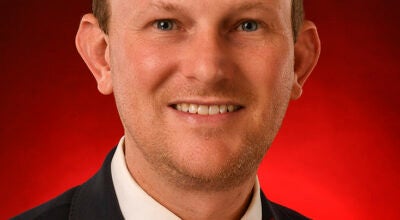Does Globalism equal Patriotism?
Published 11:00 pm Wednesday, July 17, 2013
Instead of writing a column opposing the nomination of Samantha Power to become U.S. ambassador to the United Nations, I appeared on a panel in Washington, D.C., last week to state the case. My co-panelists were some very illustrious Americans, including organizer Frank Gaffney of the Center for Security Policy, retired Army Lt. Col. Allen West, former U.N. Ambassador Jose Sorzano, retired Army Lt. Gen. William G. “Jerry” Boykin (US Army ret.), and Morton Klein of the Zionist Organization of America.
C-SPAN covered the press conference, which may be watched at c-spanvideo.org/program/Saman. So did Washington Post columnist Dana Milbank, who wrote: “Their technique was straightforward: They would impugn the patriotism of the Irish-born nominee. … I asked the speakers whether they really believed that she was an enemy of the United States or whether they merely disagreed with her politics.”
Milbank’s technique was clear, too. He would use push-button terms to fry the mental circuits of the reader: How hateful conservatives are for impugning the patriotism of anyone they merely disagree with!
When Milbank did venture into substance, he misrepresented it. For example, regarding a statement Samantha Power made in 2002 — by the way, a horrendous time of Palestinian intifada terrorism against civilians in Israel — Milbank forgot to mention that besides calling for “billions” in US aid for “a new state of Palestine,” Power also called for “a mammoth [US] protection force” to protect Palestinians from Israelis.
Power acknowledged such measures would be “fundamentally undemocratic,” but, she said, “it’s essential that some set of principles become the benchmarks rather than deference to people (in Israel and the Palestinian Authority) who are fundamentally, politically destined to destroy the lives of their own people, and by that I mean what (columnist) Tom Friedman has called ‘Sharafat.’ “
Egregious equivalence between then-Israeli Prime Minister Ariel Sharon and arch-terrorist Yasir Arafat aside, Power’s ever-present inclination to intervene on behalf of “some set of principles” — her own — is just one of the things that should give pause to lawmakers as they consider her elevation in the national security hierarchy.
Milbank, however, says raising such flags impugns her patriotism, and is therefore wrong.
I wonder how “patriotism” became the fulcrum of Milbank’s argument in the first place. If, as it seems eminently fair to say, Power seeks to strengthen global government at the U.N., she is also simultaneously seeking to weaken the sovereign powers of the US. Does such a policy belong under the rubric of “patriotism”? Perhaps we denizens of what some describe as “post-America” should be discussing whether a “globalist” can also be a “patriot.” Then again, that might take us too close to clear definitions of globalists and patriots. As Saul Alinsky (and Lenin before him) knew, clarity impedes the advance of radicalism (read: globalism, collectivism, totalitarianism, Marxism …).
Better to keep everything fuzzy, either on purpose or as a conditioned reflex, and offer globalists such as Power a refuge from criticism in “patriotism.”
“Critics of Power won’t get far simply by saying they disagree with her philosophy because it closely tracks that of the president,” Milbank wrote.
This is probably true. This is the conservative case against global government, and the case for American sovereignty and the Constitution. Not incidentally, both American sovereignty and the Constitution are undermined by boosting the powers of the U.N., which is something globalists such as Power support. That’s a non-impugning fact.
As our woman in Turtle Bay, Samantha Power would be in a unique position to further such policies. These might include, as she suggested in 2004 on C-SPAN, re-inventing the Security Council without Russia, China (due to their human rights abuses) and the United States, which she critiqued as “a by-passer of international law and international institutions.” She also supports a U.N. standing army “at the disposal of the (U.N.) secretary general” to deploy in “humanitarian” causes, which she describes as “genocide prevention, or nation-building, postwar occupation, or reconstruction.”
Such an army wouldn’t have to include Americans, she said. “There are a number of countries that … do seem to be ready to put troops on the line on behalf of things that don’t directly implicate their national interests because they have … a sense of their nations as being a part of a global community.”
Do Americans have that global-community sense? I doubt it. Indeed, the obstacle to an army for the secretary general is what Power called “domestic politics” in pesky “member states.” What she dismisses as “domestic politics,” of course, sounds like stirrings of patriotism to me.
(Diana West blogs at dianawest.net, and she can be contacted via dianawest@verizon.net.)


